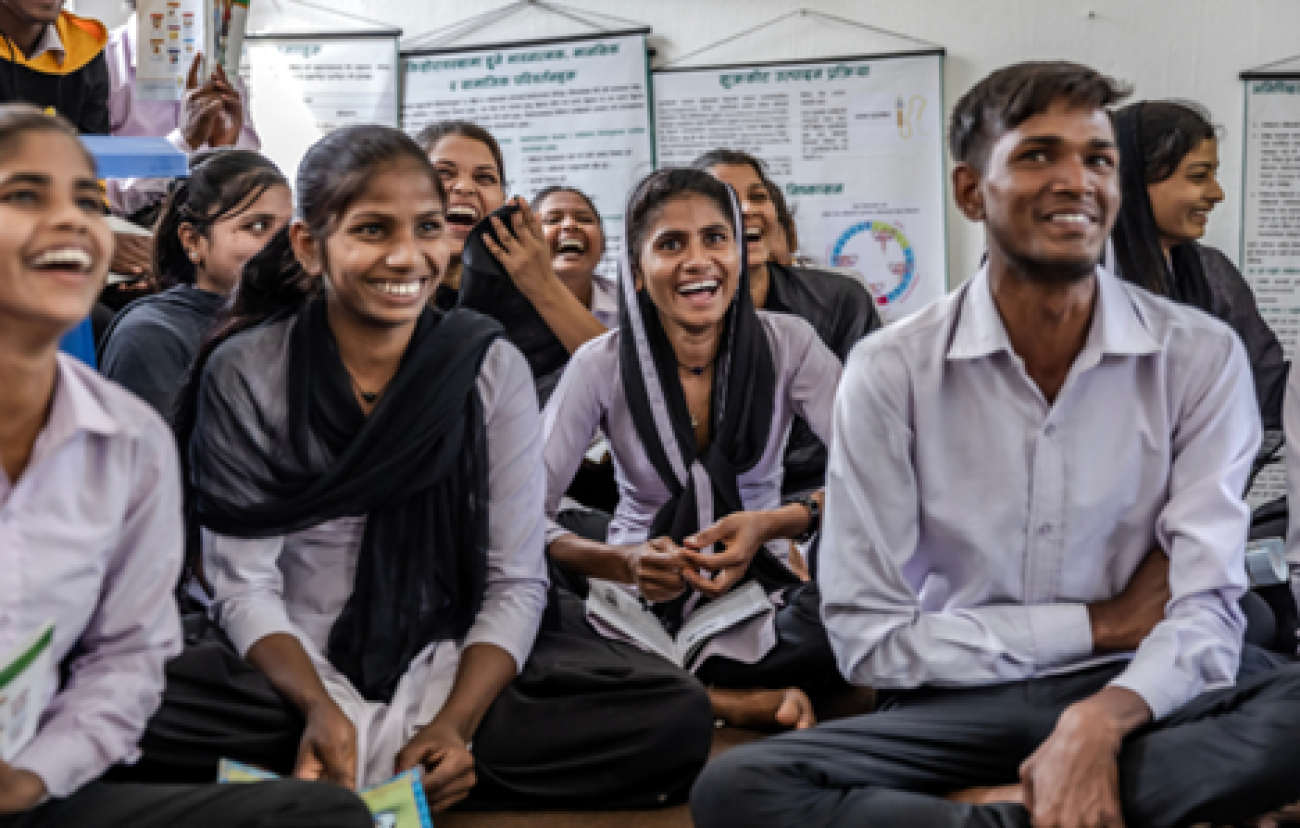Informing futures, changing lives

As adolescents mature, they experience enormous changes, in their sexual and reproductive lives.
Especially in Nepal’s rural communities where adolescents can face many cultural and social barriers, these changes and reactions to them make it difficult at times for young people to fully access sexual health services and information. The stigma around sexuality, gender inequality, and a lack of access to transportation and financial resources can all discourage young people from seeking support at this important time in their development.
In order to encourage greater awareness of sexual and reproductive health and rights, UNFPA in partnership with the Department of Foreign Affairs and Trade, Australia, supports the Government of Nepal in developing a comprehensive sexuality programme that guides young people through adolescent growth and puberty and helps them learn about their bodies and sexuality issues in an age-appropriate manner.
This comprehensive sexuality education is an important part of an adolescent’s development, according to Ramesh Gupta, who teaches students at Tilaurakot High School. He explains, “the aim is to promote the health and well-being of young people by providing them with the information and skills they need to make responsible and informed decisions about their sexual and reproductive health.”
As a result, increasingly students are receiving a more accessible range of age-appropriate lessons on sexual and reproductive health, gender and sexuality, and life skills both within schools and in communities. These help them understand the challenges and opportunities of puberty and learn about sexuality as they develop the skills needed to make informed decisions about their sexual and reproductive health.
As well as teaching in classrooms, some of the schools provide an adolescent-friendly information corner that also supports students by offering non-judgmental and confidential services in a safe and supportive environment as they mature into teenagers. “Adolescents cannot always access accurate and reliable information about sexual health and sexuality in Rajpur. This can lead to misinformation and misconceptions, and put them at risk of unintended pregnancies, sexually transmitted infections, and other negative health outcomes,” says Yashoda Thapa, the focal person at one such corner.
Adolescent-friendly information corners provide comprehensive sexuality education, which can help fill this gap, by offering accurate and age-appropriate information about sexual health, relationships, and reproductive rights. This information can empower adolescents to make informed decisions about their sexual health, and help them build healthy relationships.
For a lot of adolescents, this corner serves as a safe space for them to not only receive sexual health education outside of school but also to express themselves. One student who visits one of these corners is Rajendra Darji who says, “by providing a welcoming and inclusive space, we have access to the information and resources we need to make informed decisions about our sexual health.”
Another teenage girl that visits a school corner in Madhesh province, Sabeeha Khatun, explains, “I am curious about menstrual health and hygiene, and how to maintain good health during my period.” Sabeeha says also that “my parents encourage me to attend sessions so I can learn more about menstruation and bodily changes in a supportive environment.”
Whilst schools are a central place for students to learn about their sexuality, wider community outreach is also essential to engaging with young people on their sexual and reproductive health. Prakriti Regmi attends a community camp meeting in Rajpur where she says she has learnt about menstrual health and hygiene. “I feel more confident to make informed decisions about my health and well-being.” She continues “I used to feel shy and scared to talk about these things, but now I feel more comfortable and know that it is important to talk more openly.”
As adolescents learn more about sexual health and relationships in a safe and supportive environment, they are increasingly demonstrating confidence in their understanding of their bodies and sexual and reproductive health and rights.
School lessons help introduce students to a range of topics essential to their healthy development into adults, and the school information corners provide a safe space for them to access further information. Support in community groups and better access to sexual and reproductive healthcare centres also means girls and boys are able to discuss their experiences with one another and have access to trained staff to ensure they can access information essential for their development, reducing negative social and health outcomes.


